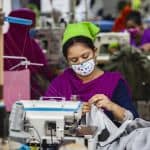A Landmark Impact Investment: Could This Innovative Experiment with Islamic Finance Provide a Model for Both Sectors?
The American market continues to innovate in Islamic finance. The recent impact investment by Mission Driven Finance (MDF) in Somali Family Service of San Diego (SFS) successfully created a partnership between two segments of the growing socially responsible spectrum that rarely intersect – despite having much in common.[1] Both offer important opportunities to one another: Today’s Islamic finance industry largely focuses on means and methods, while impact investing markets have, for the most part, emphasized ends and outcomes. But this divergence highlights how Islamic finance and impact investing can strengthen their ties, benefit from one another and thereby boost their impact.
A Breakthrough Investment
Contemporary Islamic finance has grown considerably since its inception some 50 years ago, yet remains a tiny portion of Muslim economies globally. Islamic financial markets have gained a great deal in self-confidence, perhaps in part due to their comparatively stronger resilience during the financial crisis of 2007-08. As the crisis exposed the power and irresponsibility of debt and financial markets generally, many stakeholders of the Islamic finance industry responded with expectations of greater social responsible outcomes. In response, contemporary Islamic finance markets appear ready to implement more of Islam’s substantive ethical teachings to engender social justice and positive environmental impact. But to truly scale its impact and respond to stakeholder feedback, Islamic finance will need access to more broadly responsible capital. Impact investors are well-positioned to provide that capital, as are Islamic institutions, both financial and social-financial, as they further uncover social responsibility within the Shari’ah.
The Somali Family Service of San Diego investment is, to our knowledge, the first time in which a U.S. impact investor has engaged with Islamic principles to create a socially responsible Islamic investment mechanism. SFS is a nonprofit organization supporting the well-being of new Americans from East Africa. At the time of the investment by Mission Driven Finance last November, SFS had recently been awarded a Community Development Block Grant from the City of San Diego. SFS, however, required more immediate capital to expand the reach of its much-needed programs. MDF is an impact investor that aims to “close financial gaps that will in turn close opportunity gaps,” and SFS offered MDF an attractive opportunity to do just that. But SFS added in a wrinkle – the investment would have to be structured in a manner consistent with the Islamic faith.
Some Background on Islam and Capital
I find it helpful to explain Islamic commercial principles in light of the primary objectives of the Shari’ah. Though often translated as Islamic law, the Shari’ah is better understood as the proper balance between the spiritual and material. Its primary objectives are the preservation and protection of religion, life, intellect, property and lineage. Over time, Muslim thinkers articulated a broad array of stakeholders, derived from the Shari’ah, and deftly and tightly wove their rights and interests into commercial ethics. Their goal was to incorporate the aims of the Shari’ah – particularly those involving the preservation and protection of life and wealth – into people’s relationships with capital, be they in production, investment or consumption. For that reason, Islam’s social finance institutions target critical questions of development, poverty alleviation, wealth inequalities and socio-economic stability and resilience.
As I detailed in my book, “A Socially Responsible Islamic Finance,” there are a number of convergences and collaborations between the Islamic finance and impact investing communities. The Islamic religion presents a rich tradition of environmental consciousness and a deeply embedded concern for social welfare. Good governance is participatory and countenanced as a defining distinction of believers. Of course, these brief summarizing statements understate the magnitude of research and work that has gone into articulating Islam’s traditions of social responsibility. But for our purposes, suffice it to say that once the relevance of these traditions to trade and finance is appreciated, it’s easy to identify parallels with impact investing.
Debt and Irresponsibility
Ultimately, financial structures, in both their means and ends, reflect purpose. A responsible investor cannot ignore either. The fundamental irresponsibility of debt contracts is that borrowers must first bear losses and declines in asset prices. As such, debt concentrates risks on those least able to bear them and endure their consequences. Debt has been shown to play a significant role in destabilizing markets and communities – socially and economically, during both boom and bust – exacerbating inequality and furthering both the likelihood and depth of financial crises. These cannot be outcomes intended by a responsible investor.
Because of Islam’s prohibition of riba (commonly and loosely translated as interest), SFS would not borrow at interest. Related to this rule, Muslim scholars developed a number of other guidelines meant to reflect the focus of the Shari’ah on social and environmental responsibility. Foremost among these is the requirement that an investor bear an asset or market risk in order to be lawfully entitled to profit. On the other hand, financings, such as conventional loans, built on a borrower’s credit risk are deemed exclusionary and extractive under Islamic principles – and thus irresponsible. Investors, in other words, must have “skin in the game,” such that returns are directly tied to the health and performance of the underlying venture or asset.
Islamic finance challenges impact investors to consider legal and financial mechanisms as an expression of purpose, as well as a defining factor in outcomes. Though on its face a restriction, the prohibition of riba engenders creativity, calling on markets and communities to design mechanisms built on risk sharing – as opposed to the risk shifting that has become a hallmark of financialization, and that helped produce a financial system that disproportionately benefits very few. What such structures might lead to, in terms of de-concentrating ownership, reducing concentrations and gaps in wealth, and constructing participatory economies merits further study.
Structuring a Landmark Capital Stack
Structuring a complex financing is a costly undertaking, particularly when multiple actors with varying priorities and strategies partner to design a cutting-edge capital “stack.” In the case of the MDF/SFS investment, the bulk of these capacity costs were covered by voluntary commitments of knowledge and experience – along with a forward-thinking, anonymous, individual donor and The California Endowment. Certainly, MDF deserves praise for its flexibility and the efforts it made to learn and adapt to another paradigm while holding to its mission. The result is a funding mechanism that has been too hard to come by for too many – and that provides a model for other such investments in the future.
The direct financing of SFS consisted of two tranches, catalyzed by the aforementioned Community Development Block Grant. The first tranche was provided through an interest-free loan program specific to nonprofits, and administered by MDF in partnership with United Way of San Diego County and Bank of America. (For the sake of clarity, from an Islamic ethical perspective, loans without return above principal – interest or otherwise – are not only allowed, but strongly encouraged.) Given the absence of interest on this loan, Islamic commercial principles were readily fulfilled.
The second and more complex layer of the capital stack involved the design of capital inflow and outflow between MDF and SFS, consistent with Islamic principles and MDF’s parameters. It was also important to construct a solution that was efficient, both to implement and operate. Fortunately, many of the Islamic finance market’s previous accomplishments have laid a strong foundation for constructing a workable solution to these sorts of challenges.
MDF and SFS ultimately settled on a partnership-based financing model. This entailed first creating a pool of assets that would be jointly owned by SFS and MDF. In this way, MDF would bear the asset risk required by Islamic law, and therefore would be entitled to profit. SFS would exclusively utilize these assets in its work, and to do so, would rent MDF’s share in them. SFS would, in addition, periodically purchase a portion of MDF’s stake in the assets, so that at the end of the financing term, MDF could exit their investment partnership having earned its agreed-upon profit. SFS would then stand as the sole owner of the aforementioned assets – and more importantly it would have successfully expanded the reach of its programs. It should also be noted that the financing integrated softer default and more generous remedies terms than one might find in traditional, “irresponsible” financings, as well as a penalty-free prepayment mechanism. From the point of view of Islamic finance, MDF’s investment in SFS represents a positive evolutionary milestone. The elegance of the structure and documentation is an important step in making Islamic finance more efficient and therefore more widely accessible.
In order to be more completely transformative, both Islamic and impact investors should move towards flexible debt, equity structures and asset-backed risk-sharing models in recognition of the irresponsible outcomes of typical debt and risk-shifting models. The collaborative model pioneered by Mission Driven Finance and Somali Family Service of San Diego is an important step in this direction.
[1] The author served as legal counsel to MDF.
Umar Moghul is a transactional lawyer whose practice has involved various aspects of Islamic law and ethics, and is the author of A Socially Responsible Islamic Finance.
Photo courtesy of TheUjulala.



